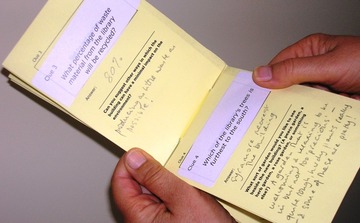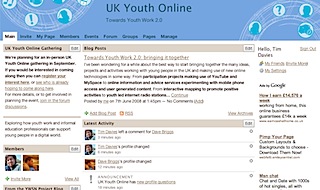 Thanks to Nick Booth for a pointer to this website where you can see which of the 198 National Indicators that central government sets for Local Authorities your council has chosen to focus on. Local Authorities have each had to choose 35 priority indicators that their performance will be measured against.
Thanks to Nick Booth for a pointer to this website where you can see which of the 198 National Indicators that central government sets for Local Authorities your council has chosen to focus on. Local Authorities have each had to choose 35 priority indicators that their performance will be measured against.
As Nick points out, the site isn't anywhere near as user friendly as it could be, but it does let me link to specific indicators. So, take a look at see:
- Is your Council focusing on providing positive activities for young people? (77 are)
- Is tackling child poverty top of the agenda for them? (it is for 45 councils)
- Are they among the 25 councils focusing on high quality PE and sport for young people?
- Or are they one of the 5 councils targeting the emotional and behavioral health of looked after children?
- Is the number of young people from low incomes background progressing to higher education on the agenda? (it is for 9 councils)
There are a number of other indicators that apply to young people – and you can either search on the Local Indicators Site to see which 35 indicators your local authority is focussed on, or you can put put the three digit indicator number (i.e. 001 for #1, 078 for 78 or 112 for #112) at the end of this URL:
http://www.localpriorities.communities.gov.uk/NIResults.aspx?NIRef=NI%20
I'll try and put together a comprehensive list & mash-up of the data if time allows next week
 Kevin combined a quiz-book based treasure hunt around the site of the library due to be redeveloped with opportunities to speak to architects, chances to
Kevin combined a quiz-book based treasure hunt around the site of the library due to be redeveloped with opportunities to speak to architects, chances to 
 I've been looking for a while for a space where all the conversations around work with young people and new technologies/social media/web 2.0 can come together.
I've been looking for a while for a space where all the conversations around work with young people and new technologies/social media/web 2.0 can come together.